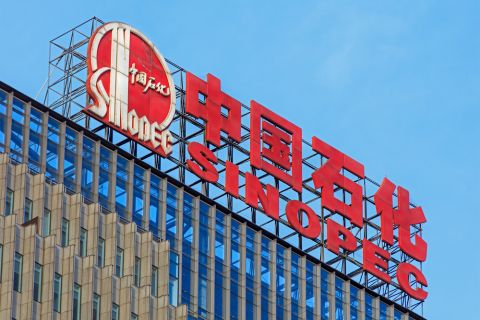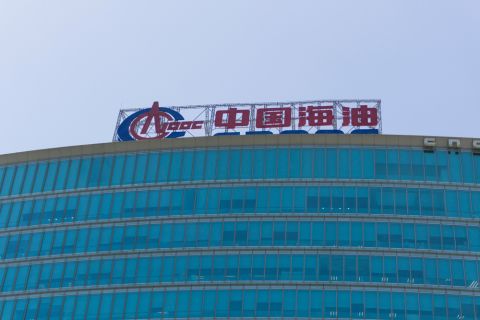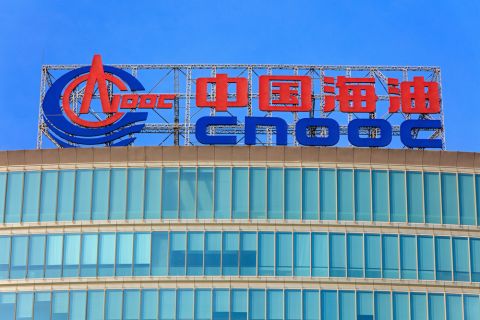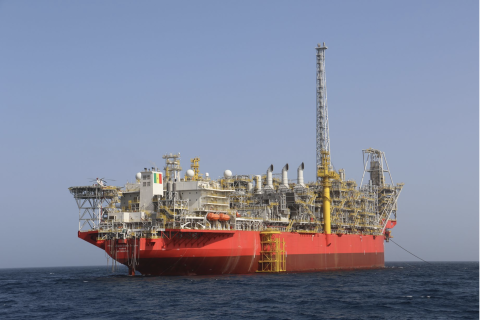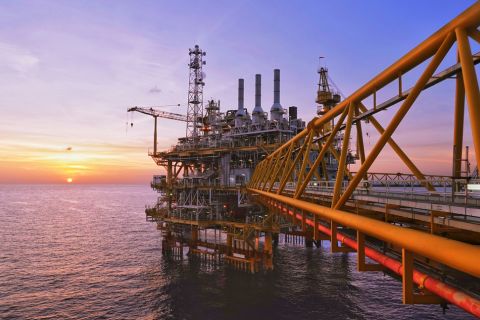British Petroleum has won analysts' approval, no matter that its most recent production performance was lackluster: 2% growth in the third quarter, compared with third-quarter 2000. One peer, Royal Dutch/Shell, has borne the brunt of analyst criticism, yet its third-quarter production improved 5%. The difference has more to do with analysts' opti-mism about each company's future performance. Shell expects its production growth to be ordinary during the next few years. BP doesn't promise much more but has had a reputation for overdelivery and it does have sev-eral projects in its hopper that could result in overdeliv-ery once again. "[BP's] pickup in capex spending since the oil-price collapse is clearly yielding results, especially as a result of increased in-fill drilling on existing fields," says Tyler Dann, integrated-oil analyst for Banc of America Securi-ties. He believes his own projections for BP's production growth may be too cautious. "Although the comparatives for this year and next may well be flattered by the effect of portfolio changes, there is clearly scope for upgrades in both our and the market's estimates." Dann has a Market Perform on the stock and expects 2002 earnings to be $2.81 per share, based on $23.50 oil and $2.95 gas. Merrill Lynch's Steve Pfeifer has rated it Buy and expects 2002 earnings to be much stronger-$3.80 per share. He estimates $3.88 for this year. 2000 actual was $3.97. Among 20 analysts who cover the stock, 10 rate it Hold, eight say Buy and two say Sell. Some of BP's increased production is to come from the Gulf of Mexico and the U.K. Shelf. In the Gulf, production from the huge Crazy Horse Field (the re-serves are estimated to be 1.5 billion barrels of oil) is to start in 2005 and total 250,000 barrels of oil and 200 million cubic feet of gas per day from up to 20 wells. On the U.K. Shelf, production from Clair Field will begin in 2004 and total 60,000 barrels per day in Phase 1, which involves 15 producing wells. BP's share of this is 28.6%. BP's strategy is much longer-term than this, how- ever, and production of hydrocarbons is a means, not an end. Speaking to a Houston international-business audi-ence recently, Rodney Chase, BP deputy group chief director, said, "You and I need a cleaner world." Fuels will eventually be free of lead, sulfur and benzene, he believes. BP is investing $850 million on cleaner-en-ergy technology. "We need to develop technology to replace conventional hydrocarbon fuels," he said. The company's new ad campaign, "BP on the Street," is setting the stage for the green-company image. The campaign features New York, Illinois, Cali- fornia and Washington, D.C., citizens discussing their views of oil companies, alternative fuels and other en-ergy-related topics. BP comes in with comments on ac-tions it is taking to address these concerns. Many of its press releases these days are green. In Washington State, it has introduced a lower-sulfur gasoline that results in 4% less nitrous oxide emission. The sulfur content is 30 parts per million, a level not re- quired by the EPA until 2006. In China, the company will give the Chinese Academy of Sciences $10 million for research during the next 10 years into cleaner sources of energy, in-cluding hydrogen as a fuel. In the U.K., the company plans to install rooftop solar technology on several homes. Also in the U.K., it is building the "world's most environmentally friendly service station." It will gen-erate up to half of its own power (using solar panels installed on the roofs of the canopy and store, and three wind turbines). The externally provided power will come from green sources. Heat from refrigerators will be channeled to an underfloor room-heating sys- tem, and a reed-bed system will treat run-off water. The bacteria living on the roots of the reeds break down oil. "The wildflower turf under the wind farm will even provide a habitat for bumble bees!" a press release says. The company calls it a "holistic approach to sus-tainable retailing." One day, might BP's oil and gas production figures not matter?
Recommended Reading
Sinopec Brings West Sichuan Gas Field Onstream
2024-03-14 - The 100 Bcm sour gas onshore field, West Sichuan Gas Field, is expected to produce 2 Bcm per year.
CNOOC Makes 100 MMton Oilfield Discovery in Bohai Sea
2024-03-18 - CNOOC said the Qinhuangdao 27-3 oilfield has been tested to produce approximately 742 bbl/d of oil from a single well.
CNOOC Finds Light Crude at Kaiping South Field
2024-03-07 - The deepwater Kaiping South Field in the South China Sea holds at least 100 MMtons of oil equivalent.
Sangomar FPSO Arrives Offshore Senegal
2024-02-13 - Woodside’s Sangomar Field on track to start production in mid-2024.
Equinor Receives Significant Discovery License from C-NLOPB
2024-02-02 - C-NLOPB estimates recoverable reserves from Equinor’s Cambriol discovery at 340 MMbbl.

